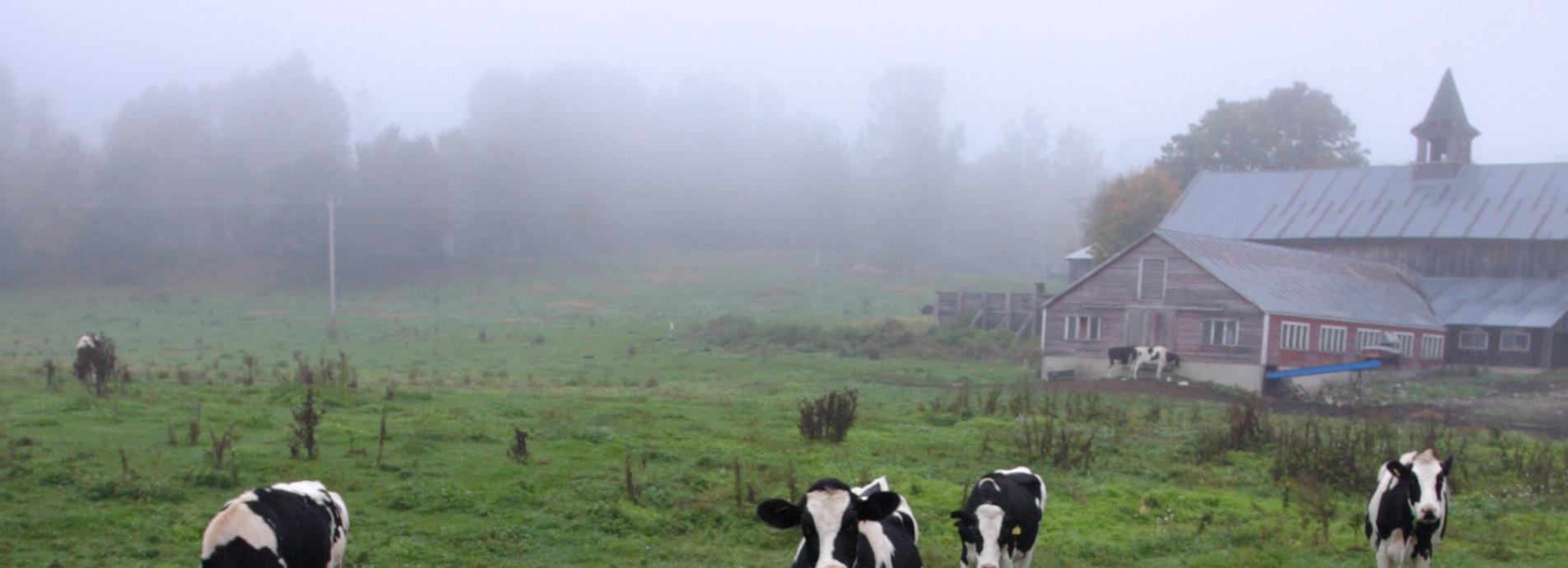During the debate leading up to the historic vote that passed Vermont's GMO labeling bill out of the House, we heard statements from many representatives. At NOFA, we felt that one of the most thoughtful and thought-provoking came from Will Stevens.
Will is co-owner of Golden Russet Farm, a certified organic vegetable & greenhouse operation in Shoreham, VT, and is now in his 32nd year of commercial production. He has been a NOFA-VT member for about that long, and is a past President of VOF. He is currently in his fourth term serving as an Independent member of the VT House of Representatives, and is on the Agriculture & Forest Products Committee.
Will's remarks addressed well-debated scientific questions of GMO crops as well as a topic much less discussed: the spiritual and religious implications of genetic engineering. He asks,
"What is food? Is it something we stuff in our mouths to fuel our machine, or is it nourishment for our body and our mind?" Is this not the “People’s House?” Whose interests are we serving when we oppose the public’s right to know?For those of you who did not have a chance to hear Will's testimony at the statehouse, he has graciously given us permission to reprint it here in full. It's long, for a blog post, but well worth the time. Please take a moment to read it, then let us know what you think! Do your spiritual or religious views affect your opinion on GMO labeling? I’d like to attempt to answer the question that has been asked on the floor multiple times: Why label if 80-85% of our food already contains GE?, and I’ll focus on two aspects of this: religion and science. Our job as policy makers is to weigh alternate truths: when we do our job well, we listen to as many sides of an issue as possible, from people who have opinions based on their life’s perspective. This can be challenging, especially when values are part of the consideration. To my mind, we listen to folks who are experts, who are willing to share their versions of truth with the policy makers. We, the policy makers, then have the task of deciding what version, or variation, of truth makes the most appropriate policy at any given point in time. In this case, we have explored a variety of state’s interests that have already been discussed – environmental, health, cultural, and personal concerns. One area we haven’t talked much about yet on the floor are the religious aspects of this issue. I found that religion provided me with my most confounding reaction to the testimony we heard in the six or so weeks we spent developing this bill: What are the religious aspects and implications of GE technology that labeling would address. We heard about social justice, or injustice when it came to reconciling the availability of information and food to those who care deeply about man’s role in a spiritual world. We heard about economic justice, about the ability of folks to make informed purchases. We heard fundamental existential and philosophical thoughts on a variety of core beliefs, some of which I’ll now share: Man, through science, has changed the rules of the game. What used to be God’s work is now performed in corporate labs, which raises existential concerns for people in a variety of religious faiths. We heard from Christian ministers and a Jewish rabbi who shared their personal thoughts, and the views of their congregations on faith, labeling, and GE. For those folks, scientific explanations fail to bring comfort, because of the new existential role man plays in their understanding of God as the Creator. What is food? Is it something we stuff in our mouths to fuel our machine, or is it nourishment for our body and our mind? For some, the act of eating is a sacred act, and prayer, or giving Thanks before a meal, sacrilizes the food. It allows us to be mindful, if only for a moment, of what we are about to put into our mouths. Prayer can remind us of what it takes to put food on the table, and it allows us to pause for a moment and give thanks for the wonder of life and the mysteries of creation. When we give grace for the food on our table, we are giving thanks to the presence of a higher being, not a corporation. The Rev. Daniel Buford, pastor of the Allen Temple Baptist Church in Oakland, California gave our committee a few thoughts to metaphorically chew on:
- Life is not a commodity, to be created, marketed, and controlled by corporations.
- Corporations are interested in profits, not in the health of the world, nor the future of “God’s species.”
- Labeling will help members of his congregation align their beliefs with their personal practices, such as purchasing, diet, and health.
- Finally, he said, “God created life, seeds, and fruit, and He declared it ‘good.’ That’s good enough for me!”
Thanks again to Will Stevens for sharing his testimony.

